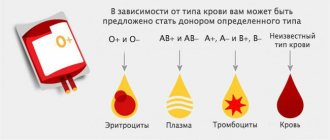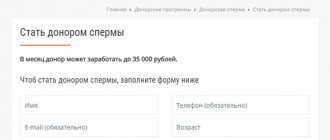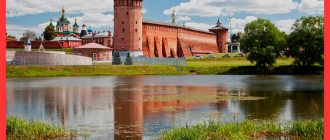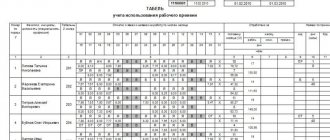In every region of Russia there are blood transfusion stations - mobile and stationary. Volunteers are ready to donate their blood and blood components to save people in need of blood transfusions. Despite the fact that donating blood is a kind of charity, the authorities of the constituent entities of the Russian Federation encourage donors in every possible way. In this article we will talk about what benefits are established for blood donors in Nizhny Novgorod and throughout the country (at the federal level), and how to apply for privileges.
Benefits for blood donors in Nizhny Novgorod - payment for donation (replacement of meals with cash compensation)
At the federal level, a benefit has been established - providing blood donors with free nutritious food on the day of donation (blood donation).
Previously, laws prohibited replacing lunch with money, but today it is enough for a donor to write a statement asking for monetary compensation instead of food, and the person in charge of the transfusion station must meet halfway.
Important!
The size of the payment, designed to compensate the donor for free food, is 5% of the regional subsistence level. In some regions of the Russian Federation, authorities increase the amount at their discretion.
469 rubles are allocated from the funds of the Nizhny Novgorod region
for each case of free blood donation by a donor. It should be borne in mind that an employee of a medical organization cannot impose the replacement of meals with a cash payment - money can only be issued in the following cases:
- if blood is donated in a room provided free of charge for the collection of donor blood;
- if the donor applied to donate blood at a mobile blood collection station;
- if the donor himself wished to receive money instead of lunch and expressed his desire by writing a statement.
If a donor donates blood on a reimbursable basis, the payment ranges from 8 to 45% of the regional subsistence minimum
and depends on the type of blood component or blood group - blood of a rare group is more expensive, blood elements (platelets, leukocytes, erythrocytes, plasma) also have different prices.
Honorary donor of Russia benefits Nizhny Novgorod
The most important factor influencing the approval of a person’s candidacy for donation is his state of health. Before the blood collection procedure, the candidate undergoes a medical examination, takes the necessary blood tests, and answers a number of questions about previous diseases. Of particular interest are blood diseases and other diseases transmitted through blood. For false answers about diseases, a person is liable under the law, depending on the severity of the harm caused.
Determination of donation and obtaining status
All donors in the country are divided into one-time, regular and honorary donors. One-time blood donors donate hemomaterial, as a rule, for a specific case, or during a corporate donation, in company with colleagues. But they don’t count on or plan to donate blood again.
Any citizen of Russia can accomplish a real feat and save someone’s life. To do this, you don’t have to be a wealthy person and regularly donate to charitable foundations. It is enough to simply donate blood at a transfusion station. Such a simple act deserves respect and admiration.
The assignment of donor payments is made in accordance with the Rules approved by Decree of the Government of the Russian Federation dated November 19, 2004 No. 663 “On the procedure for awarding citizens with the “Honorary Donor of Russia” badge and providing an annual cash payment to citizens awarded the “Honorary Donor of Russia” badge.
The annual cash payment to persons awarded the “Honorary Donor of Russia” badge is established by Law in the amount of 9,959 rubles and was indexed once a year from January 1 of the current year based on the established forecast level of inflation.
Of course, a person’s desire to become a donor is an important part, but this condition may not be enough. Donation is a process that carries certain risks for the condition and health of the donor; the goal of this procedure is to help a patient in need without harming the donor. The donor must meet the parameters that were established by doctors.
Important ! It should be mentioned that in the Russian Federation there is such a thing as hidden paid donation. This is a situation where the patient’s relatives look for a donor and pay him for donating blood. It is clear that the monetary rewards in this case are much greater than those discussed by the government.
Receive vouchers for health purposes without waiting in line
What preferential compensation do St. Petersburg, Ufa, Novosibirsk, Nizhny Novgorod and other cities and regions provide? These areas do not provide compensation in excess of federal ones. Bonus benefits in the regions were abolished in 2004. Every year, reimbursements in other areas are carried out, taking into account regional pricing policies; in Moscow this figure is slightly higher.
If a donor donates blood while on annual paid leave, on vacation on a weekend or a holiday, he has the right to choose another day off for blood donation. Moreover, for each case of donation, a person is entitled to an extra day off, in addition to the day of blood donation, and the additional day off can be used at any time of the year or added to the main leave with pay. For each day that the employee was absent due to blood donation, he will be paid an average salary - the same applies to payment for additional days off.
469 rubles are allocated from the funds of the Nizhny Novgorod region
for each case of free blood donation by a donor. It should be borne in mind that an employee of a medical organization cannot impose the replacement of meals with a cash payment - money can only be issued in the following cases:
You might be interested ==> How many hours do you need to drive to get your license in 2021?
Additional benefits for blood donors in Nizhny Novgorod - one-time payments
In any city in Russia, including Nizhny Novgorod, on the days of medical examinations related to blood donation and directly on the days of donation, donors are exempt from performing labor duties at their place of work. If the employer agrees with the employee, the day off may be postponed to a later period.
At each visit to the blood donation station, the donor fills out a questionnaire, undergoes an examination by a doctor and an initial laboratory examination. After completing the donation procedure, the person receives a certificate stating that he is a donor and can already take advantage of cash compensation for lunch in the amount of a 5% discount.
Benefits for blood donors at the place of employment
In any city in Russia, including Nizhny Novgorod, on the days of medical examinations related to blood donation and directly on the days of donation, donors are exempt from performing labor duties at their place of work. If the employer agrees with the employee, the day off may be postponed to a later period.
Important!
If the work involves harmful and/or dangerous working conditions or heavy physical activity, it is prohibited to negotiate with the donor employee to postpone the day off.
If a donor donates blood while on annual paid leave, on vacation on a weekend or a holiday, he has the right to choose another day off for blood donation. Moreover, for each case of donation, a person is entitled to an extra day off, in addition to the day of blood donation, and the additional day off can be used at any time of the year or added to the main leave with pay. For each day that the employee was absent due to blood donation, he will be paid an average salary - the same applies to payment for additional days off.
Before donating blood, a person is examined by a medical professional, laboratory tests are prescribed, and the maximum allowable dose of blood and its components that a volunteer can donate is determined. If in a year he donates blood (components) free of charge in double the maximum possible quantity, he is entitled to a preferential ticket to a sanatorium at his place of work/study on a first-come, first-served basis.
How often can I take it?
HIV carriers who suffer from syphilis, hepatitis, etc. cannot be donors. But even more harmless diseases can become a contraindication, at least temporarily. So, after a sore throat, you can’t donate blood for a month, etc.
Honorary donor of Russia: what benefits and payments are due in 2021 and 2020
Before donating blood, a person is examined by a medical professional, laboratory tests are prescribed, and the maximum allowable dose of blood and its components that a volunteer can donate is determined. If in a year he donates blood (components) free of charge in double the maximum possible quantity, he is entitled to a preferential ticket to a sanatorium at his place of work/study on a first-come, first-served basis.
You might be interested ==> Why bailiffs don’t come to the debtor
A donor who donates blood and (or) its components free of charge during the year in a volume equal to two maximum permissible doses of blood and (or) its components is given the right to priority purchase at the place of work or study of preferential vouchers for sanatorium and resort treatment. The volume of the maximum permissible dose of blood and (or) its components is determined by the doctor during a medical examination of the donor.
Additional benefits for blood donors in Nizhny Novgorod - one-time payments
The authorities of Nizhny Novgorod have approved additional measures to stimulate blood donors - the amount of a one-time payment depends on the specific case:
| Case of donating blood | Amount of lump sum payment (RUB) |
| Donate blood between 8 pm and 8 am; on holidays, on weekends (for each donation). | 300,00 |
| Donation of red blood cells. | 350,00 |
| Every 4th blood donation within 12 months. | 500,00 |
| Every 12th and 20th blood donation for 12 months. | 500,00 |
| Every 10th and 18th donation of blood and plasma (mixed form of donation) for 12 months, subject to their summation. | 500,00 |
| Blood platelet donation. | 600,00 |
| Donation of isoimmune and immune plasma. | 700,00 |
| Donation of leukocytes and bone marrow cells (without stimulation of hematopoiesis). | 1650,00 |
| Donation of leukocytes, bone marrow cells (with stimulation of hematopoiesis). | 3650,00 |
In addition to the monetary incentives listed above, payments to blood donors who donated their blood and its components during the Second World War were approved in the Nizhny Novgorod region:
- 300 rubles as an annual payment for Victory Day;
- 500 rubles as an annual one-time payment for the International Day of Older Persons.
Payments and benefits to honorary donors of the Nizhny Novgorod region and Russia
Honorary donors in Russia can claim the following payments and benefits, valid throughout the country:
- A one-time annual benefit, subject to indexation every year and amounting to 13,562 rubles 78 kopecks .
- Possibility of purchasing a single social travel ticket, which applies to all types of public urban and suburban transport, except for commercial taxis and minibuses.
- Possibility of obtaining discounted vouchers to a sanatorium at the place of work/study.
- Service without queues in municipal and state clinics.
- The ability to go on basic leave with pay at any convenient time without taking into account the vacation schedule.
Determination of donation and obtaining status
To receive the “Honorary Donor” award badge, as well as the corresponding status, a citizen needs to contact the social authority. protection according to the place of registration and provide an identification document, as well as documentation confirming the fact of transfusion or blood donation procedures.
Benefits for donors in 2021
- Provision of services in public medical institutions on an extraordinary basis.
- Cash compensation that is not subject to mandatory tax. The given amount is not constant and is indexed in accordance with inflation.
- Providing one-time leave during the calendar year at any period chosen by the donor.
- Providing a voucher for sanatorium-resort treatment free of charge and on an extraordinary basis.
Apr 29, 2021 semeiadvo 438
Share this post
- Related Posts
- Sample declaration 3 personal income tax when selling a car in 2021
- Nutritious nutrition for a nursing mother, Rostov
- Reduction of terms of imprisonment for grave and especially grave offenses in 2021
- Do large families in Stavropol benefit from benefits at the clinic?
Expert opinion on the question of how to become an honorary blood donor
According to experts from the Ministry of Health , the owner of the status of “Honorary Donor of Russia” can be a blood donor who donated free of charge:
- blood and/or blood components (not plasma) at least 40 times, or
- blood and/or blood components at least 25 times + blood plasma in the total amount of blood and/or components – 40 times, or
- Blood and/or components less than 25 times + plasma in the total amount of blood and/or components – from 60 times.
To become an honorary donor, you must regularly donate blood and collect certificates issued after each donation of blood and its components. When you have the required number of documents, you need to go to the branch of the Ministry of Health and Social Development with your papers and passport. Within 45 days, specialists will study the application, after which they will make a decision on issuing a badge or refusing to issue the status. In the future, you will need to submit the documents again to process the annual payment. You need to have with you:
- application for annual payment for donation;
- passport;
- Certificate of an honorary donor of Russia.
Legislative acts on the topic
| Decree of the Government of the Nizhny Novgorod Region dated September 16, 2008 No. 389 | About additional measures to support blood donors |
| Federal Law of July 20, 2012 No. 125-FZ | About donation |
| Art. 186 Labor Code of the Russian Federation | On providing labor benefits to blood donors |
| Order of the Ministry of Health of the Russian Federation dated December 13, 2012 No. 1039 | About the diet of a blood donor on the day of donation |
| Order of the Ministry of Health of the Russian Federation dated April 26, 2013 No. 265n | About replacing meals with monetary compensation |
| Order of the Ministry of Health of the Russian Federation dated July 11, 2013 No. 450n | The procedure for making annual payments to holders of the “Honorary Donor” sign |
Honorary donor benefits Altai region
The presence of such a sign definitely means efforts on the part of the donor and his high moral qualities. Such an award is very honorable, but could it bring something less abstract and more tangible? Maybe now it will be considered what benefits and payments the “Honorary Donor of Russia” can provide in 2021.
Honorary donor of Russia: benefits and payments in 2021
If you are over eighteen, weigh more than fifty kilograms, and are healthy, then you have a direct path to becoming a donor. It’s honorable, respected, and they also provide benefits. Why not try it? But you definitely need to familiarize yourself with the list of contraindications (the list can be found at each blood transfusion station). Have you gotten acquainted and decided on a difficult procedure?
If a donor donates blood on a reimbursable basis, the payment ranges from 8 to 45% of the regional subsistence minimum
and depends on the type of blood component or blood group - blood of a rare group is more expensive, blood elements (platelets, leukocytes, erythrocytes, plasma) also have different prices.
- A one-time annual benefit, subject to indexation every year and amounting to 13,562 rubles 78 kopecks .
- Possibility of purchasing a single social travel ticket, which applies to all types of public urban and suburban transport, except for commercial taxis and minibuses.
- Possibility of obtaining discounted vouchers to a sanatorium at the place of work/study.
- Service without queues in municipal and state clinics.
- The ability to go on basic leave with pay at any convenient time without taking into account the vacation schedule.
Common mistakes
In any city in Russia, including Nizhny Novgorod, on the days of medical examinations related to blood donation and directly on the days of donation, donors are exempt from performing labor duties at their place of work. If the employer agrees with the employee, the day off may be postponed to a later period.
In accordance with Article 1183 of the Civil Code of the Russian Federation, in the event of the death of a citizen awarded the “Honorary Donor of Russia” or “Honorary Donor of the USSR” badges, the right to receive an unpaid annual monetary payment provided to him as a means of subsistence belongs to those living together with the deceased members of his family, as well as his disabled dependents, regardless of whether they lived together with the deceased or did not live.
- Law of the Russian Federation dated July 20, 2012 No. 125-FZ “On the donation of blood and its components”;
- Order of the Ministry of Health of the Russian Federation dated July 11, 2013 No. 450- “On approval of the Procedure for making annual cash payments to persons awarded the “Honorary Donor of Russia” badge;
- Order of the Government of the Nizhny Novgorod Region dated December 30, 2013 No. 2735-r “On the organization of work to implement the Decree of the Government of the Russian Federation dated November 26, 2012 and the Order of the Ministry of Health of the Russian Federation dated July 11, 2013 No. 450-n.”
You may like => Is it possible to sell energy drinks under 18 years of age in the Russian Federation
Payments to honorary donors
Annual cash payments for Victory Day and for health improvement are provided by social protection authorities at the place of residence of citizens of the specified categories without requiring additional documents based on the “Social Assistance” database of the Ministry of Social Policy of the Nizhny Novgorod Region and information provided by the Ministry of Health of the Nizhny Novgorod Region.
In the regions, additional privileges for honorary donors apply. They are financed from the regional budget. Regions have the right to develop their own system for awarding the titles of honorary donors to a particular region. That is, a donor who has the official federal status of “Honorary Donor” has the right to an additional title and preferences in the region of residence.
The required documents are the applicant’s passport and a certificate of the awarded title “Honorary Donor”. The authorized body has a period of 10 days to consider the appeal. Upon completion, he is obliged to inform about the decision, and if the answer is positive, monetary compensation will be awarded to the applicant.
What is the amount of monetary compensation?
Not everyone is able to receive the title of honorary donor. This task is not easy. The number of blood draws should be at least 40, plasma elements - at least 60. Taking into account that plasma can be donated a maximum of 20 times per year, and the number of blood donations for women is only five per year, for men - four, it is easy to understand that Achieving the title is not a matter of one year. It should be noted that only gratuitous (free) donations are taken into account when calculating.
Those citizens who have received such an important status as “Honorary Donor of Russia” can count on an increased payment in 2021. According to the latest news, the benefit indexation percentage was 3%.
Common mistakes
Error:
An honorary donor to Russia is counting on an increase in pension benefits and early retirement.
A comment:
Donating blood, like having the badge of an honorary donor, does not give you the right to a preferential pension and an increased amount of pension benefits - the fact of donating blood does not affect your pension in any way.
Error:
A blood donor from the Nizhny Novgorod region donated blood 8 times. He claims an annual lump sum for donating blood.
A comment:
Only holders of the “Honorary Donor of Russia” badge can count on this payment.







